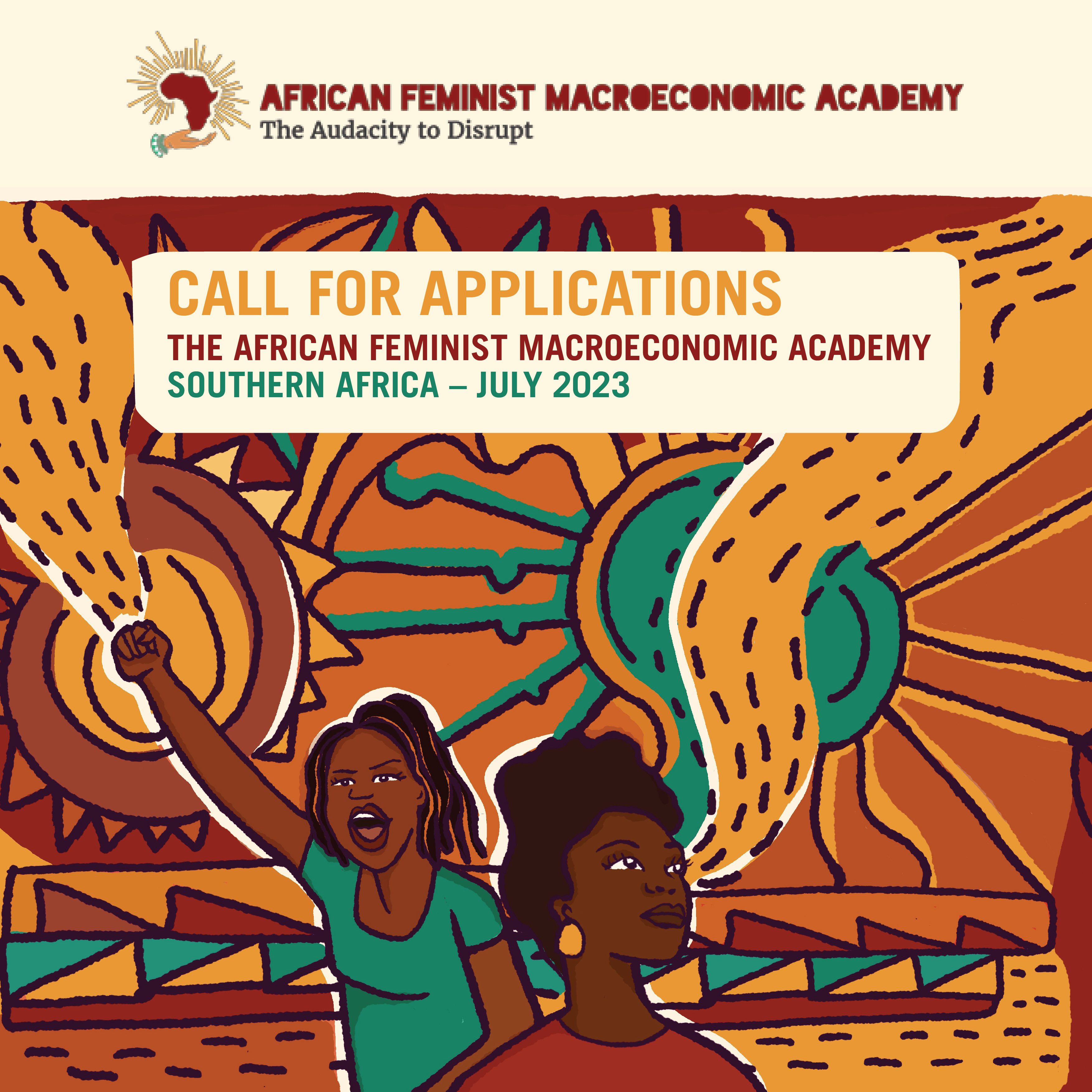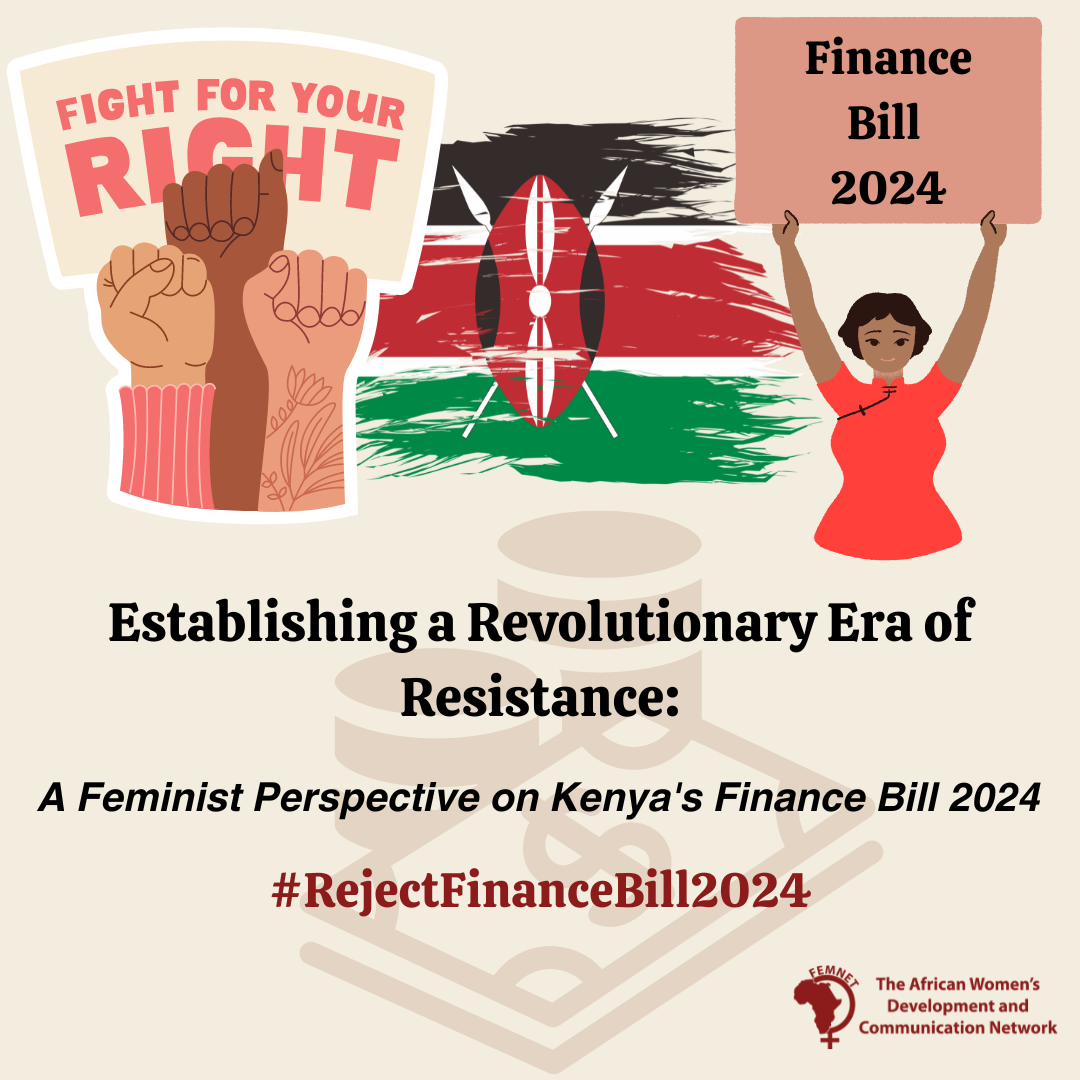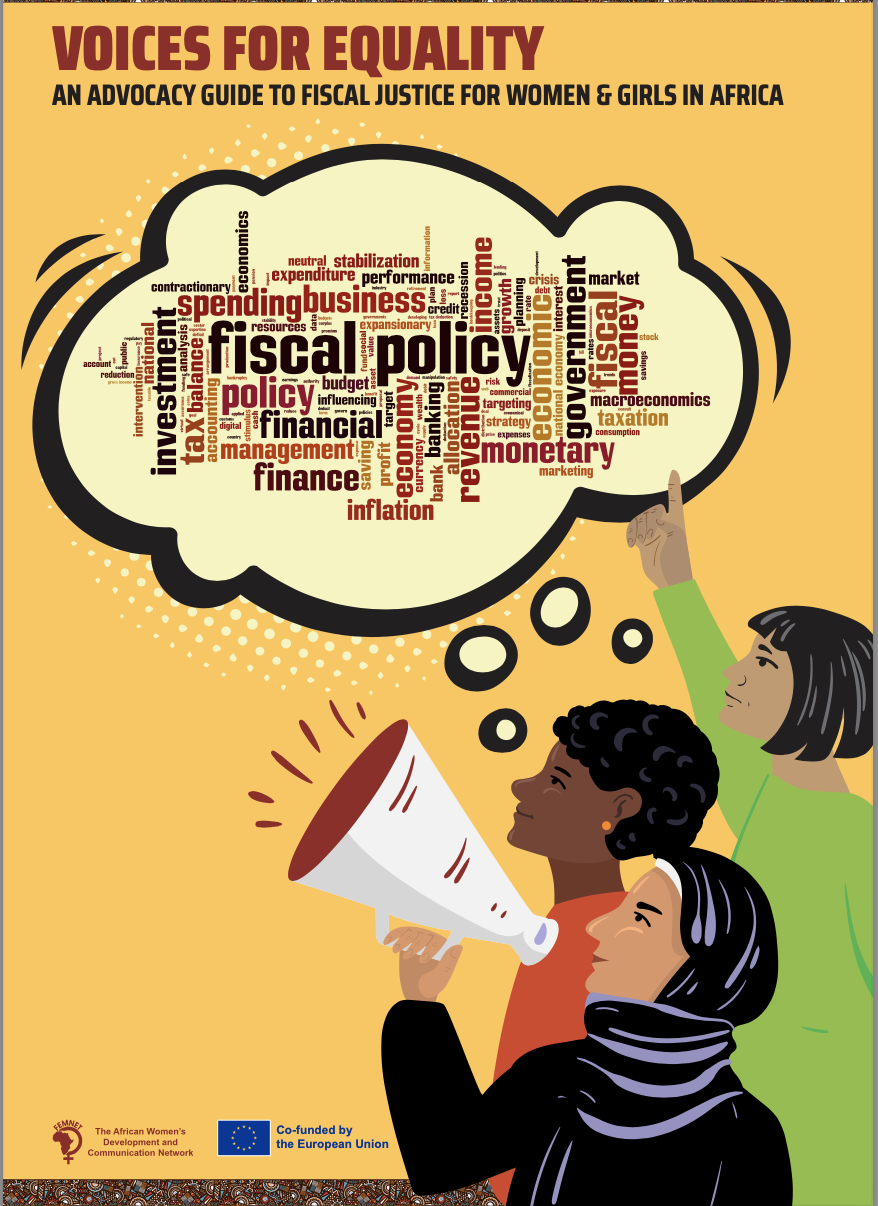
AFMA Southern Africa Call For Applications
Theme: The role of Private Finance – Feminist Alternatives to the Financialisation of Everyday Life
FEMNET will host the African Feminist Macroeconomics Academy (AFMA) in Cape Town, South Africa in July 2023.
Women’s rights organisations and feminist economics scholars have long countered the international financial architecture’s exclusive concern with the advancement of financial and commodity markets, which overlooks the numerous adverse impacts on women and girls. This speaks to an ongoing struggle for economic justice, advanced by feminist activists, against an increasing replacement of public provisions by market-based, individualised entitlements for those who can afford them, creating an economy that directly commodifies daily life – from privatised healthcare to privatised utilities such as water. And unlike any crisis before, the Covid-19 pandemic has reaffirmed more concretely what feminist activists have long been pointing out: that the crucial role of care work, and social reproduction more broadly, has been severely undermined under an economic system that prioritises profit over life and that it is predominantly women who have subsidised the role of state in the context of a global financial order that directly invisibilises care work, unless in instances where it can be commodified for the benefit of private interests.
Some of the sub-themes to be explored in the programme:
- Introduction to feminist political economy as a critical framework for understanding some of the post-Covid-19 realities, with a focus on economic trends in Southern Africa;
- Debates on the evolving trajectory of financialised capitalism in SSA, and contemporary manifestations of private sector influence through de-risking and blended finance mechanisms;
- Sovereign debt and the role of international financial institutions;
- Financing for development, and the role of the state.
Participants will gain a strong understanding of the prevailing state of play, shared by a number of African feminist scholars and activists who hold extensive knowledge and experience in advocating for economic justice in sub-Saharan Africa. They will also be exposed to debates on the evolving trajectory of finance capitalism; contemporary manifestations of private sector influence such as de-risking and blended finance mechanisms; feminist policy recommendations to governance structures; historical trajectories of neoliberal economic policies with a specific focus on its nature in sub-Saharan Africa; feminist approaches to sovereign debt issues; unpacking the role of key actors such as international finance institutions.
We invite applications from women’s rights organisations, activists, researchers and economic policy practitioners and university students. The application should include a paragraph-length bio and 500-word abstract outlining a potential research project (including an essay, journal article or blog) linked directly to the themes of the Academy, which the applicant will also begin to develop within AFMA.
Entry requirements:
- Women’s rights activists and advocates – including young feminists working in positions on policy influence and advocacy for the advancement of economic justice in Africa.
- Journalists and bloggers interested in feminist economics and/or development finance.
- You’ve studied economics, politics or any relevant social studies.
Applicants from the following countries will be considered: Madagascar, South Africa, Botswana, Swaziland, Lesotho, Namibia, Angola, Zambia, Malawi, Mozambique, Mauritius, Zimbabwe.
Apply Here: bit.ly/3VO47ko
Application deadline is 28 May 2023, midnight SAST.
——————– ————————————-
For more information, please contact Wambere Mugo w.mugo@femnet.or.ke
Related Tags
Related Posts
Establishing a Revolutionary Era of Resistance: A Feminist Perspective on Kenya’s Finance Bill 2024
On June 20, 2024, citizens of Kenya from all regions of the country participated in a second round
Learn MoreVoices For Equality – An Advocacy Guide To Fiscal Justice For Women and Girls in Africa
The language of fiscal policy might often feel like navigating a highway of technical jargon. However, beneath the
Learn More

